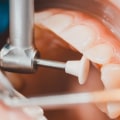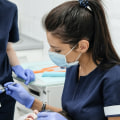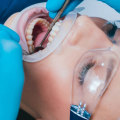Removing dental plaque, tartar and stains from teeth. As a dental hygienist, you'll play a critical role in helping patients maintain good oral health. Performing regular cleanings and offering helpful tips for effective home care are some of the key tasks in your job description. Regis College is one of New England's leading dental hygiene programs, offering associate's and bachelor's degrees in science.
Our program has very high success rates, with 100% of students participating in outreach projects while in the program. Regis students have access to an on-campus dental center, which houses an active dental hygiene office. After their third year of study, students will be eligible to sit for board exams for licensing. The scope of practice of dental hygienists varies from state to state.
Most dental hygienists perform oral health evaluations; expose, process, and interpret dental x-rays (x-rays); remove plaque, calculus, and stains from teeth; apply preventive materials including fluoride and sealants; teach patients proper oral hygiene techniques; and advise patients on maintaining optimal oral health. In some states, dental hygienists can administer local anesthesia and sedation with nitrous oxide and oxygen; prescribe fluorinated and antimicrobial agents; place temporary restorations; place permanent restorations. According to the American Association of Dental Hygienists (ADHA), dental hygienists provide clinical care under varying degrees of supervision. The role of a dental hygienist goes far beyond cleaning your teeth and today involves all aspects of good oral health.
To become a dental hygienist, you'll need to have a license from the state where you want to work. Dental hygienists are licensed healthcare professionals who provide preventive, educational, and therapeutic dental health services directly to patients. For more information about careers in dental hygiene, contact your own dentist, dental hygienist, or dental society in your area. The practice of dentistry includes prescribing and manufacturing dental prostheses and appliances.
In addition to collecting a dental health history, hygienists also actively screen patients for cavities and oral diseases before the dentist performs any work. However, in general dentistry and in many specialty dental offices, dental hygienists play a vital role in patient care. No statement is made about the quality of dental services to be performed or the experience of participating dentists, and that participating dentists are no more or less qualified than dentists who are not participating in the service. You can also contact an accredited dental hygiene program to meet with a counselor or schedule a school visit.
To learn more about the role of CDHC and how you can get started, contact your local or state dental society. Under the laws of most states, a dentist must perform a separate exam in addition to a preliminary evaluation by the dental hygienist. In the United States, all states require that dental hygienists receive specialized training before working in a dental office.



